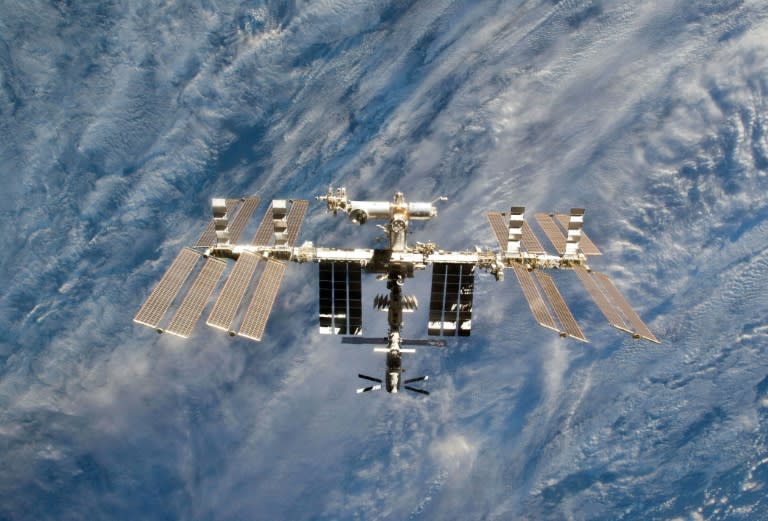NASA collects 'space debris' that crashed into Florida man's home

NASA said Tuesday it was analyzing an object that crashed from the sky into a Florida man's home -- which could well be a piece of debris jettisoned from the International Space Station.
Alejandro Otero of Naples, Florida, posted on X that the item "tore through the roof and went (through) 2 floors" of his house, almost striking his son, on the afternoon of March 8.
He believes it was a piece of a cargo pallet containing old batteries that NASA ground control teams released from the orbital outpost in 2021.
It was supposed to burn up harmlessly over the Earth's atmosphere on March 8, according to official projections. Otero also posted a clip from his home Nest video camera where he said the sound of it crashing through his roof could be heard at 2:34 pm.
"So that's 1934 UTC, which is very consistent with the Space Force estimate of reentry over the Gulf at 1929 UTC," wrote noted astrophysicist Jonathan McDowell, in response. "I think you may be right and it's a bit from the reentry of the EP-9 battery pallet."
The news was first reported by local news outlet winknews.com on March 15.
"NASA collected an item in cooperation with the homeowner, and will analyze the object at NASA's Kennedy Space Center in Florida as soon as possible to determine its origin," the space agency said in a statement to AFP on Tuesday. "More information will be available once the analysis is complete."
A report by specialist news outlet Ars Technica said while the batteries were owned by NASA, they were attached to a pallet structure launched by Japan's space agency -- potentially complicating liability claims.
Past examples of manmade human space debris hitting Earth include part of a SpaceX Dragon capsule landing on an Australian sheep farm in 2022. Skylab, the United States' first space station, fell on Western Australia.
More recently, China has been criticized by NASA for allowing its giant Long March rockets to fall back to Earth after orbit.
ia/dw

